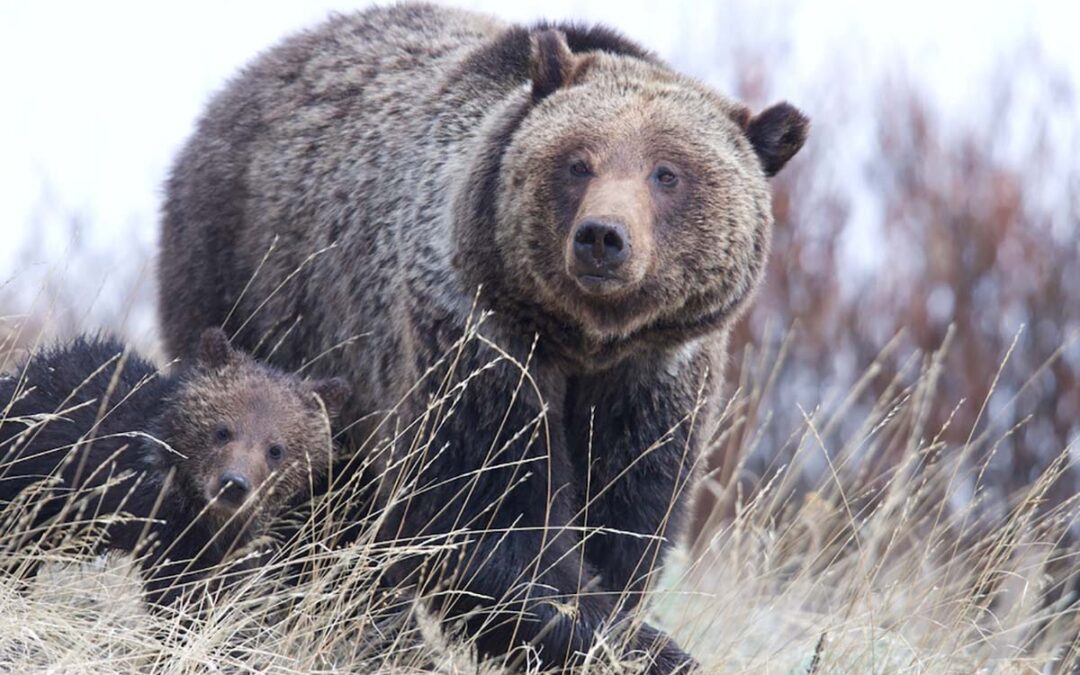On May 25, a federal district court in Montana halted a large-scale industrial logging project in endangered grizzly bear habitat in northwestern Montana. The Alliance for the Wild Rockies requested the preliminary injunction to protect the small, isolated, and imperiled Cabinet-Yaak grizzly bear population from further harm.
The Ripley logging project authorized almost 17 square miles of commercial logging (10,854 acres) on publicly-owned National Forest lands, including roughly five square miles of clearcuts (3,223 acres). The project also authorized the construction of 30 miles of new logging roads, as well as reconstruction of 93 miles of logging roads. By the U.S. Forest Service’s own estimate, the project would cost federal taxpayers $643,000 to implement because the receipts from the commercial timber sales do not cover the cost of the ecological remediation necessary after the project.
The federal court found that the project is most likely illegal because the government did not analyze the cumulative impacts on grizzly bears from logging on public lands, state lands, and private lands all at the same time. Roads pose the biggest threat to grizzly bears, followed by logging and habitat removal. And the Cabinet-Yaak grizzly population in particular is in bad shape. The most recent actual count of grizzlies (published in 2021 for the 2020 monitoring year) for this population is 45 bears. The prior year counted 50 bears, and the year before that counted 54 bears. However, the government’s own Grizzly Bear Recovery Plan requires 100 bears for the minimum viable population.
The Cabinet-Yaak grizzly population is also failing every recovery target and goal: it is failing the target for females with cubs; it is failing the target for distribution of females with cubs; it is failing the female mortality limit (which is 0 mortalities until a minimum of 100 bears is reached); and it is failing the mortality limit for all bears (also 0 mortalities until a minimum of 100 bears is reached).
A 2016 peer-reviewed, published scientific research paper, Kendall et al. (2016), analyzed the Cabinet-Yaak grizzly population in detail based on extensive and systematic DNA collection in the region and found: “In the small Cabinet and Yaak populations, the difference between growth and decline is 1 or 2 adult females being killed annually or not.” Humans killed two female Cabinet-Yaak grizzly bears in 2020.
Kendall et al. 2016 further found: “the small size, isolation, and inbreeding documented by this study demonstrate the need for comprehensive management designed to support [Cabinet-Yaak Ecosystem] population growth and increased connectivity and gene flow with other populations.”
Consistent with these serious concerns about the potential extirpation of the Cabinet-Yaak grizzly, the court held: “the [Cabinet-Yaak Ecosystem] population of grizzly bears is especially vulnerable.” The court further explained that the government had relied on “knowingly false assumptions,” had “grossly misstate[d] the applicable law,” and had engaged in “evidentiary sandbagging” in the case.
The court ultimately held: “Plaintiff is likely to succeed in proving that [the government’s] decision to not attempt to obtain and disclose data concerning reasonably certain State and private activities, and the agencies’ decision to rely on a factual assumption they know to be incorrect in assessing the Project’s cumulative effects on the grizzly bear, violated the ESA and were arbitrary and capricious.”
This win is a great victory for the Cabinet-Yaak grizzlies. But this case is not over. It will take a lot of hard work and money to protect this victory. Please consider donating to support our decades-long commitment to saving the Cabinet-Yaak grizzly bear.
Mike Garrity is the Executive Director of the Alliance for the Wild Rockies
